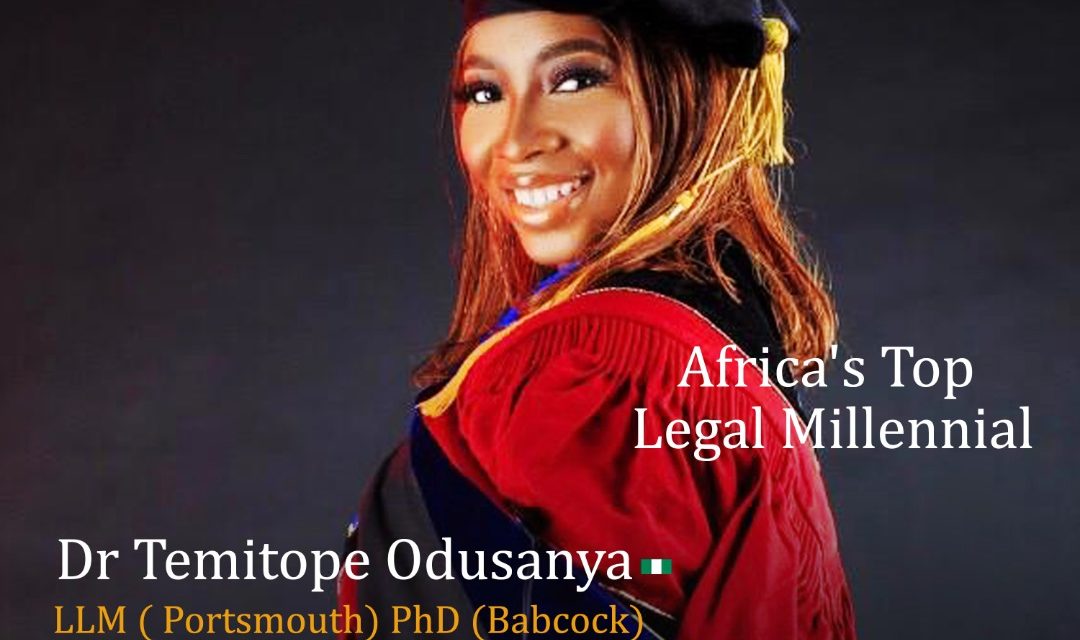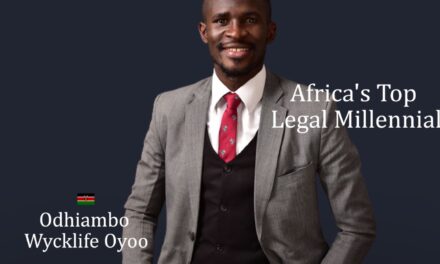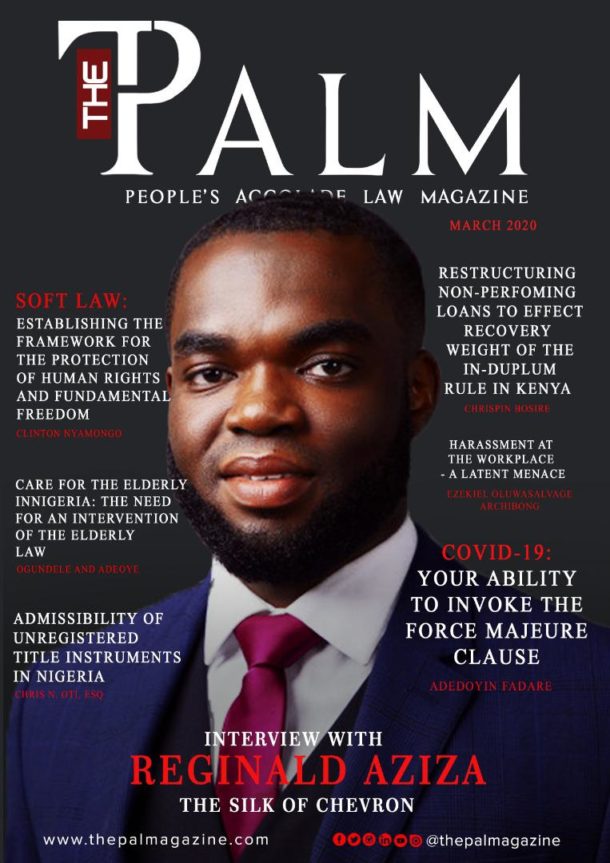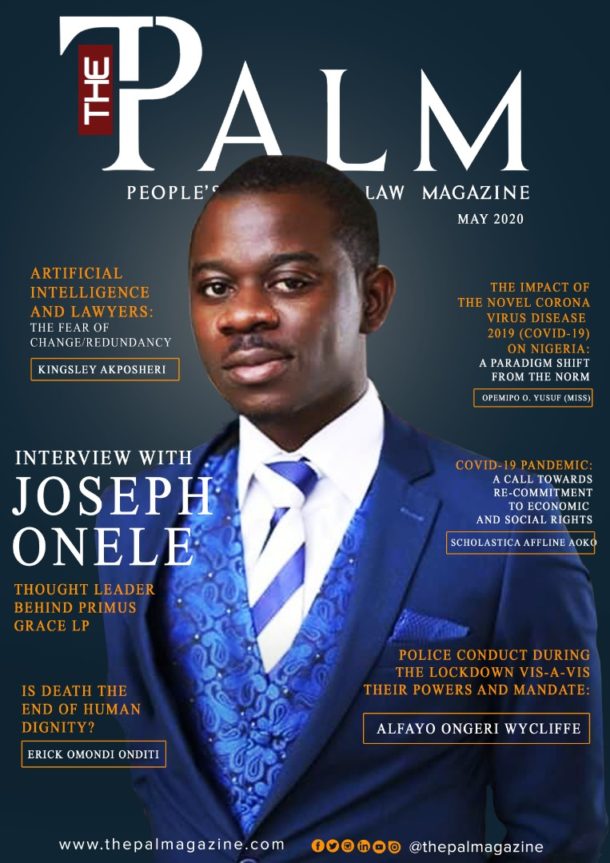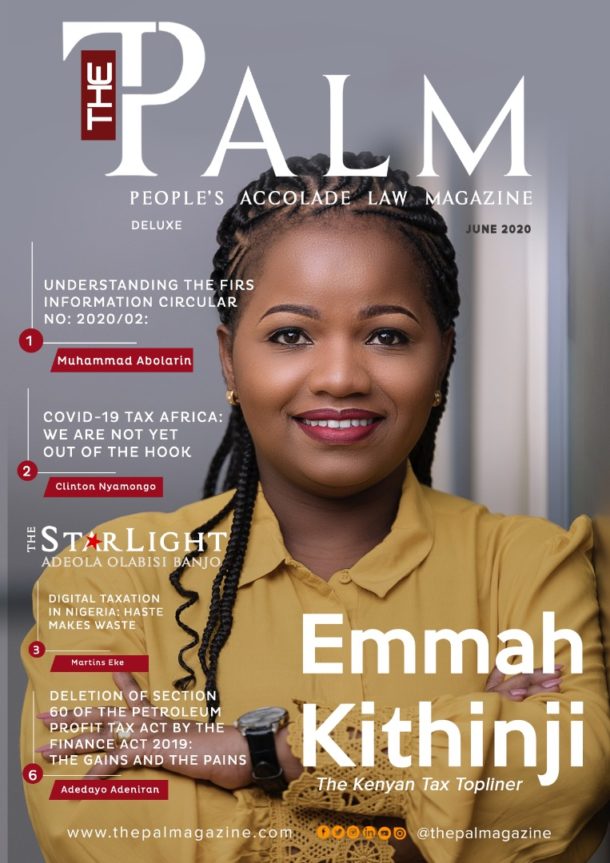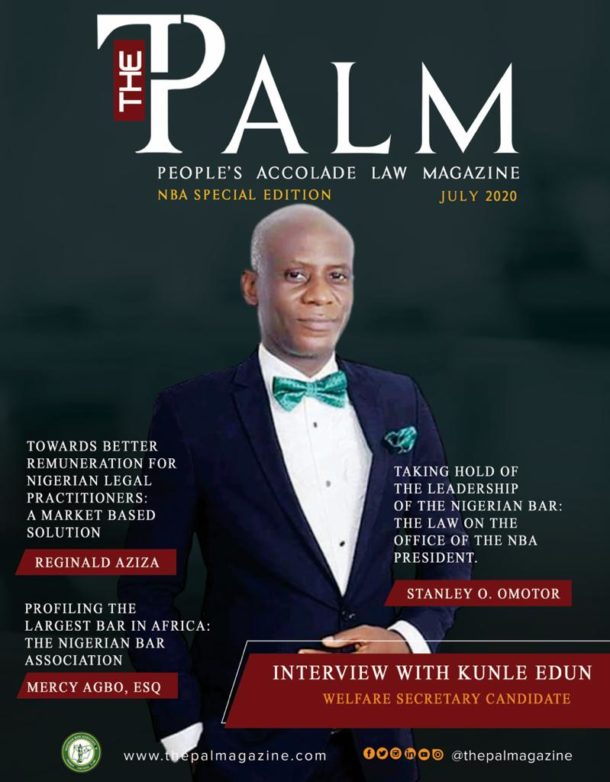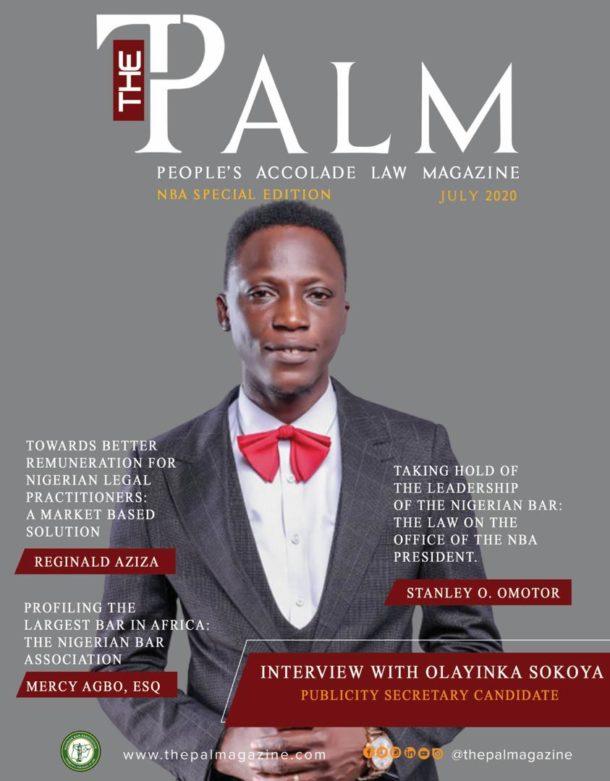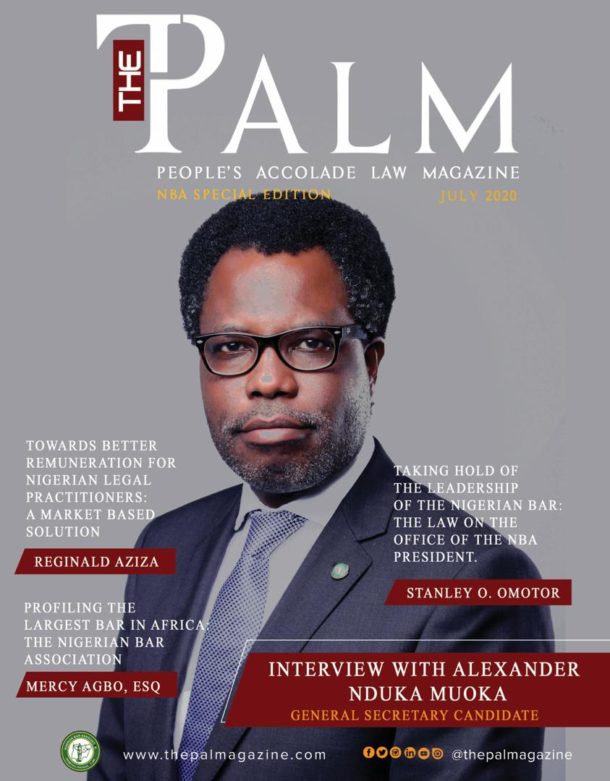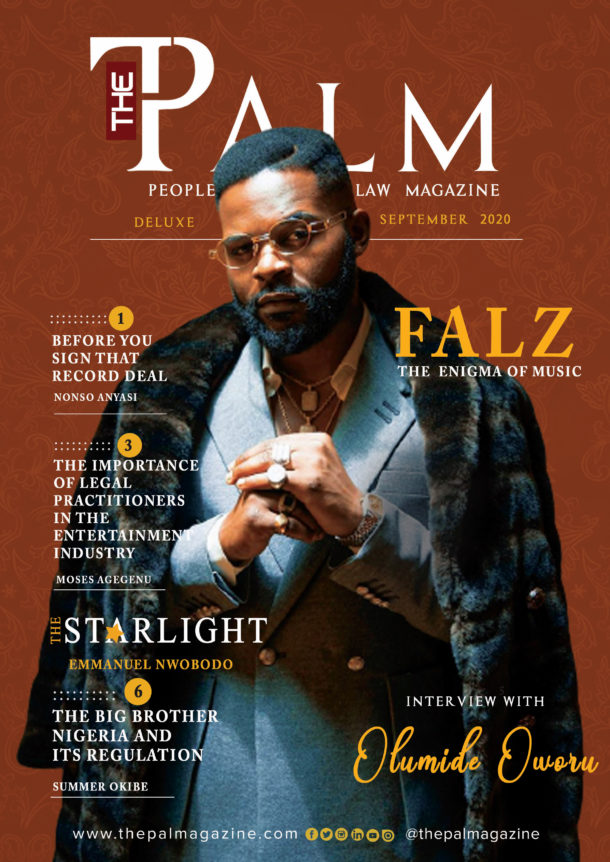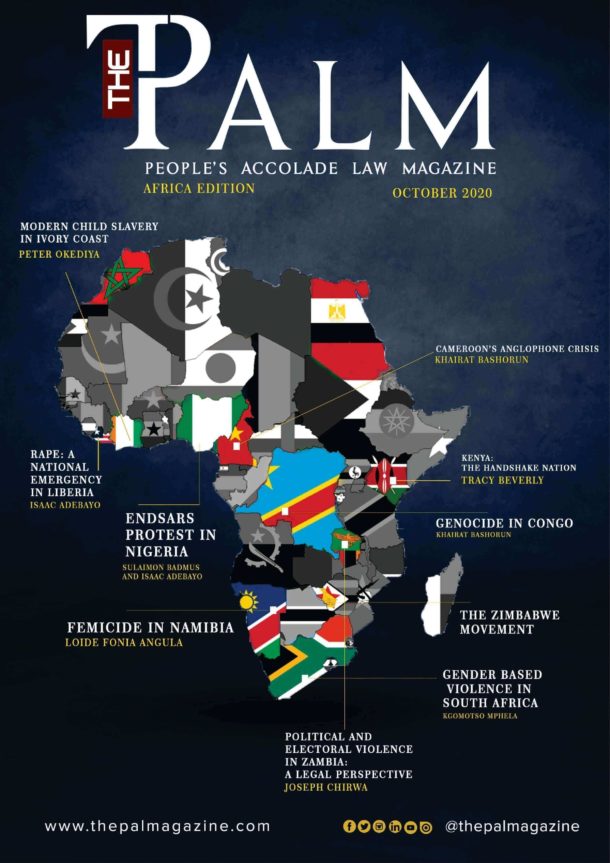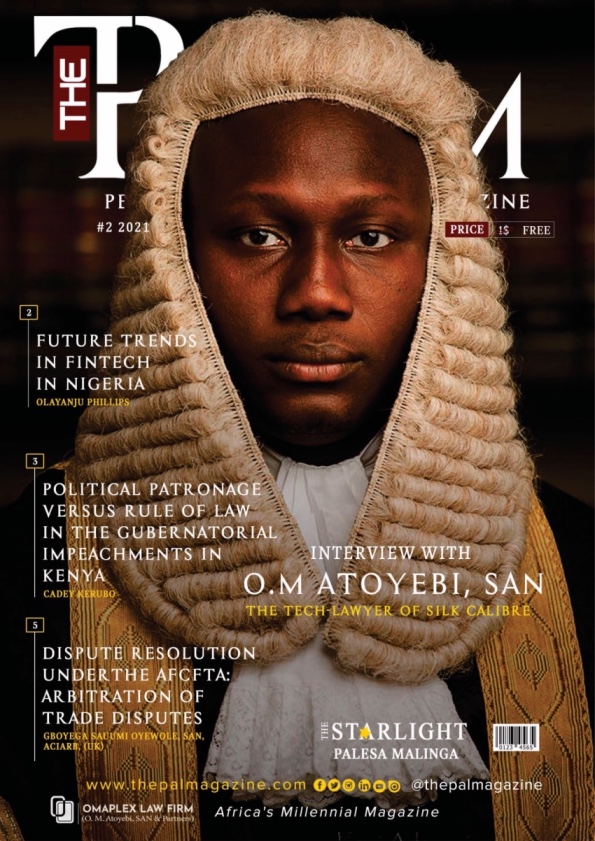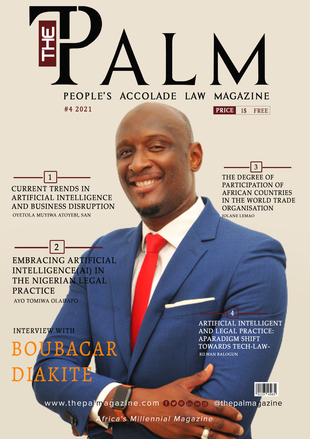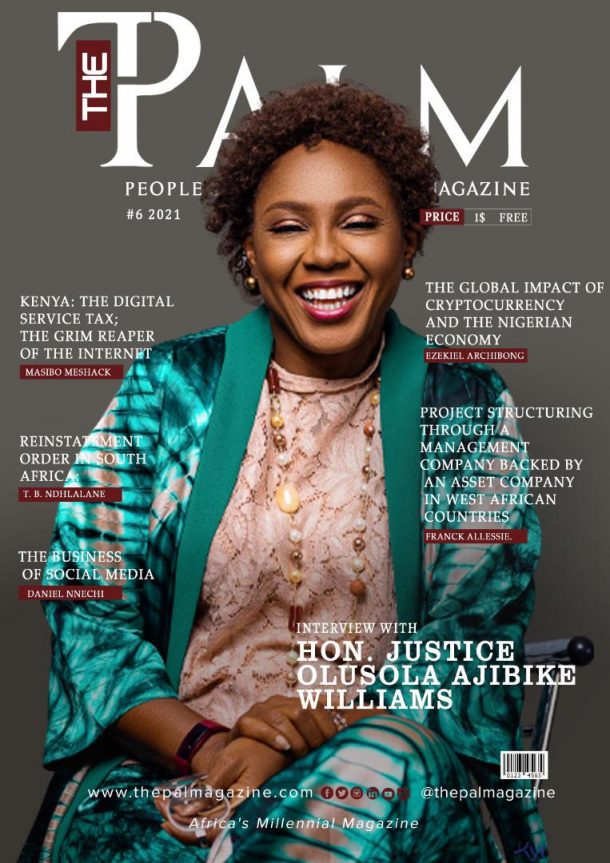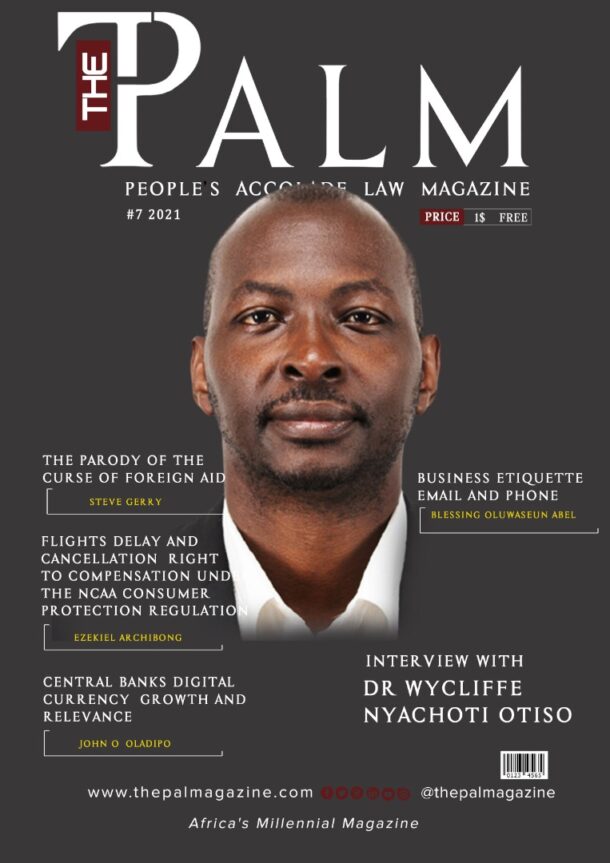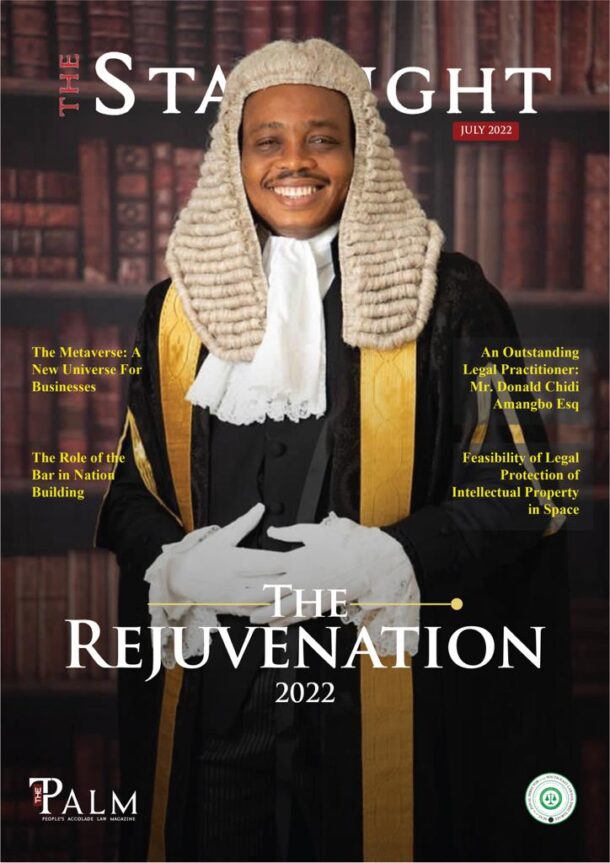“Law that is devoid of democratic privileges, the basic constitutional and fundamental human rights,… is appalling”– Dr Temitope Omotola Odusanya
Dr Temitope Omotola Odusanya, “Temi” holds an LL.B Hons from Buckingham University, BL Nigerian Law School, an LL.M from Portsmouth University, GCILEx UK and is a Member of the Chartered Institute of Legal Executives, GCG UK, aMember of The Chartered Governance Institute formerly known as the Institute of Chartered Secretaries and Administrator (ICSAUK) and a PhD. in Political Science, from Babcock University She is the passionate UK and Nigerian trained corporate governance professional.
She completed her mandatory national youth service program at the Ministry of Justice, Minna, Niger State, where she served as NYSC State Counsel. She was attached to the Attorney General Chambers where she also got several accolades both from the Ministry of Justice and from the indigenes of Niger State for the pro-bono services she rendered. She also received a merit certificate of recognition from the Legal Aid CDS Community Development Services Club at Suleja.
Temi is a highly personable legal advisor with deep and extensive knowledge of corporate law, company secretarial services, compliance, energy law, politics, business management and corporate governance. She is a zealous legal eagle, renown barrister and a chartered governance professional, corporate legal executive/secretary/practitioner with years of experience in the provision of company secretarial, legal advisory, corporate governance, compliance and regulatory guidance to various organisations. Temi has garnered work experiences in Nigeria and internationally, that is, the United Kingdom. Besides, she is a seasoned doctor of philosophy (PhD) and a postdoctoral scholar.
Furthermore, she is a Blueprint Software certified administrator, a result-oriented professional who prides herself in her ability to go above and beyond to deliver. She can analyse complex issues and adapt effectively to suit the needs of her clients. Temi is passionate about the law and the success of the organisations that she has worked with. Also, she is committed as she works around the clock to ensure that timeliness is met. She is currently unemployed and open to job opportunities.
1. What makes scholarship and practice exciting for you and who is your role model?
Response: To be honest, the mere fact that I am a lawyer and scholar is thrilling, it feels like I have won a jackpot. The realisation that I belong as a ‘noble’ member of the largest bar in Africa by being a Barrister and Solicitor of the Supreme Court of Nigeria, is electrifying.
Personally, the most exhilarating thing about scholarship and the practice of law lies in its dynamism, the never-ending intellectual quest and curiosity. Just as learning is a continuum, the law can never be static, thus, continuing legal education is a must! Hence, a great scholar and legal practitioner is inter alia, a reader and critical thinker, who must continually keep abreast of changes in the law and its practice. More so, sometimes ago, just when I felt like (Yassss!) I know it all, being humbled by my learned colleagues and seniors is predominantly interesting because it temporarily got me in my feelings and also motivated me to become better. Moreover, the research, governance, compliance and regulatory checks, due diligence, legal draftings in general and advice to clients who were too willing and ready to follow my instructions to the letter, made me extra cautious, yet so happy.
Interestingly, beyond the practice of law, I discovered my passion for politics and my PhD major in Political Science, albeit, law and diplomacy, which is a subdiscipline of political science. , Therefore, the quest for knowledge is an endless pursuit as the study and practice of law is so versatile. It reveals a deeper scope of knowledge. In the same vein, it is exciting to note that scholarship, just like the practice of law, is goal-oriented as it is targeted at providing solutions, answering germane questions especially on prominent issues bothering our contemporary Nigerian society.
Besides, what makes scholarship and practice exciting for Temi is the universal applicability of laws. It is as simple as listening to a modern scenario of negligence where, for example, someone suddenly finds a strange object in their canned beverage. Immediately, the locus classicus neighbourhood principle of Lord Atkin in the case of Donoghue v. Stevenson (1932) inter alia, comes to mind. Likewise, there is nothing entirely new under the sun, this is in the sense that, there is usually something newly developed but, from an already existing precedent. For example, the above principle by Lord Atkin, in 1932 is arguably the perspective of the natural law theory and the historical maxim of alterum non-laedere, which has the main connotations of Biblical hermeneutics. It is so much enjoyable knowing that the law does not exist in a vacuum. Moreover, the fun fact that behind every general rule, there is an exception, also gives scholarship and the practice of law an interesting angle.
I am inspired by so many fantastic people, the list is inexhaustible. I have had the pleasure of knowing, working with, being taught and mentored by some of my role models. These role models are, but not limited to. the followings: Professor Emeritus Alaba Cornelius Ogunsawo who is like a grandad to me, he has consistently and expertly mentored me for over twelve years, since my Lead City University (LCU) days; Professor Bankole Sodipo, my learned supervisor who guided and encouraged me every step of the way, all through my thesis research. With him, distance is no barrier, even though, he travelled abroad for his sabbatical leave, which was close to the completion of my thesis, he constantly reviewed every chapter I wrote online and emailed them back for me to affect my corrections; Professor Konyin Ajayi SAN, who also contributed immensely towards the execution of my study in Babcock University. I am particularly enthused by Dr Ibukun Awosika, who (just like me, smile) is also passionate about the growth of women, amongst other things. Essentially, I have had the great privilege of being a sponsored delegate, twice, of such a generous role model, Mr Olumide Akpata who is the incumbent president of the Nigerian Bar Association (NBA).
2. What is your philosophy of impacting the nation through the practice of the law?
Response: My philosophy of impacting the nation through the practice of the law is in tandem with the quintessence of the law. This corroborates the exciting and worthwhile impetus that scholarship, just like the practice of law, must be goal-oriented which is a solution targeted and proffers answers to prominent issues bothering our contemporary Nigerian society. In furtherance to the above, the importance of the practice of the law, in the most real form, in any given society, is to impact the nation and this fact cannot be overstated. Especially with consideration to latest #EndSARS protest in my nation, Nigeria, the practice of law without free, fair, un-bias, democratic and non-violent response to a freedom of speech is shambolic. It suffices to assert that:
Law that is devoid of democratic privileges, the basic constitutional and fundamental human rights[i] to soro soke, speak up, where citizens are unable to call leaders to action and account, is appalling.
For starters, the Constitution of Nigeria, the grundnorm, which is the most significant and supreme law[ii] of the nation-state should be completely discarded since the rights, the entitlement to freedom of expression and to hold opinions without interference[iii], is not adequately upheld and it has also been recently disregarded with the massacre[iv]. The practice of law should be evident in our society res ipsa loquitur, the impact should speak for itself, otherwise, it will seem somewhat, as a disenchantment or a mythical practice of law in the nation.
Imperatively, beyond making money, ethical values are paramount. Rendering pro bono services every once in a while, as lawyers, being the voice of the voiceless is a great cause. This cause would systematically impact society as a whole. Legal practitioners as ministers in the temple of justice should vehemently advocate for the rule of law, integrity, equality, fundamental human rights and democracy while they also challenge irregularities especially unaccountability and corrupt practices. The impact of the legal practice must not only be seen, but it must also be felt and heard in our nation.
3. What is the next big thing you are working on?
Response: I am afraid, I reckon that I am supposed to ‘just do’ and not talk about it until it is ripe enough to share. (Laughs)
The next ‘big thing’ that I am working on, already set in motion, is an extensive project on “Gender Diversity and Women Empowerment”. The core of this project is focused on gender diversity, which is a global issue as corporations agree that it is fundamental to sustainable business practices. Accordingly, there is a benchmark for international best practices which advocates for gender parity in the workplace. This has led several countries to voluntary interventionist methods as well as laws and codes of corporate governance across the globe to comply with the international benchmark. However, research has shown that Nigeria has not adopted this benchmark which has resulted in the lack of gender diversity.
There are certain cultural sentiments or stereotypes that a woman is an ordinary implement for continuous progeny; she cannot break kola; she can only be seen and not heard;[v] that a woman belongs only to the kitchen and the other room.[vi] Additionally, a typical example is an Igbo proverb which articulates that Na’ nzukọ, ọ kamma inu okwu nwatakịrịnwoke karịa ịnụokwu nwaanyị. This means that in a meeting, it is preferable to heed the words of a little boy than that of a woman. It is a sarcastic and ridiculous underestimation of womanhood. To say that the woman has no idea to offer as advice, to the point that the little boy’s words supersede the words of any woman, her age, status and wealth of experiences notwithstanding, is in itself an irrationality. Yet, this bias remains evident in the socio-cultural bias and marginalisation against women in diverse spheres.
Be that as it may, these stereotypes neglect fundamental realities that gender diversity is vital for brainstorming which is a creative innovation in problem-solving as it also aids better comprehension of market positions. To buttress further, women are good collaborators as they have more interactive and excellent people skills. There is a popular saying amongst the Yorubas’ that it is a woman who knows the market very well (obinrin lo mo oja).
Ultimately, it is hoped that the project “Gender Diversity and Women Empowerment” will be of enormous aid in shattering the glass ceiling.
My thesis was centred on the Legal Appraisal of Corporate Governance and Gender Diversity in Nigerian Quoted Companies”. I intend to take this further with advanced post-doctoral research whilst I also aspire to become a Professor before I turn 30. Correspondingly, in collaboration with some of my learned friends and seniors, mentoring, coaching and networking for the enhancement of gender diversity in the African patriarchal society, is another corresponding yet, big thing, I pray germinates.
Last but not least, an important big thing that I am looking forward to, is basically to travel the world, see life, enjoy life and continue to be very happy. (Smile)
4. What do you consider the millennials greatest strength?
Response: Millennials’ greatest strength is undisputedly SOCIAL MEDIA AND UNITY. Although, generally, millennials strengths include creativity, technology, intelligence, social media and unity. However, in my opinion, their greatest strength is social media coupled with the power of unity, which makes us stronger. The principal basis for this consideration is that, more than ever before, millennials’ latest and greatest strength that is, social media and unity were evidenced especially through the use of social media platforms during the peaceful protest of #EndSARS – whereby we came together powerfully, with one voice to God and men to soro soke, speak up, for our rights and humanity.
Such a powerful force of unity was not restricted to physical presence with the aid of social media. It is indeed a truism that the world is a global village and social media through its interconnectivity has done more good than harm. Our leaders shook as it is impossible to side-step such an impeccable togetherness amongst millennial.
Click here to read our previous millennial, Ibrahim Shehata
Send your feedback to millennial@thepalmagazine.com
Send your news to news@thepalmagazine.com
[i]As enshrined in chapter IV, of the Constitution of the Federal Republic of Nigeria, 1999 Third Alteration Act 2010 (as amended).
[ii] Section 1, of the Constitution of the Federal Republic of Nigeria, 1999 Third Alteration Act 2010 (as amended).
[iii]Section 39, Chapter IV, of the Constitution of the Federal Republic of Nigeria, 1999 Third Alteration Act 2010 (as amended).
[iv]Section 33, Chapter IV, of the Constitution of the Federal Republic of Nigeria, 1999 Third Alteration Act 2010 (as amended).
[v] Bolanle Eniola and Adeoye Akinola, ‘Cultural Practices and Women’s Land Rights in Africa: South Africa and Nigeria in Comparison’ (2019) Trajectory of Land Reform in Post-Colonial African States, pages 109-123.<https://www.link.springer.com accessed 12th November, 2020; Chidiebere Onwutuebe, ‘Patriarchy and Women Vulnerability to Adverse Climate Change in Nigeria’ (2019) SAGE Open Volume 9, Issue 1 <https://www.journalsectionsagepub.com,2158244019825914 12th November, 2020.
[vi] President Muhammadu Buhari, ‘Nigeria’s President: My Wife Belongs in my Kitchen, Living Room and the Other Room’ BBC News (14th October, 2016) <https://www.bbc.com/news/world-africa-37659863 accessed 12th November, 2020.

